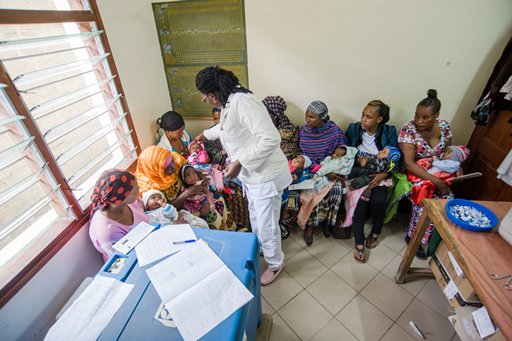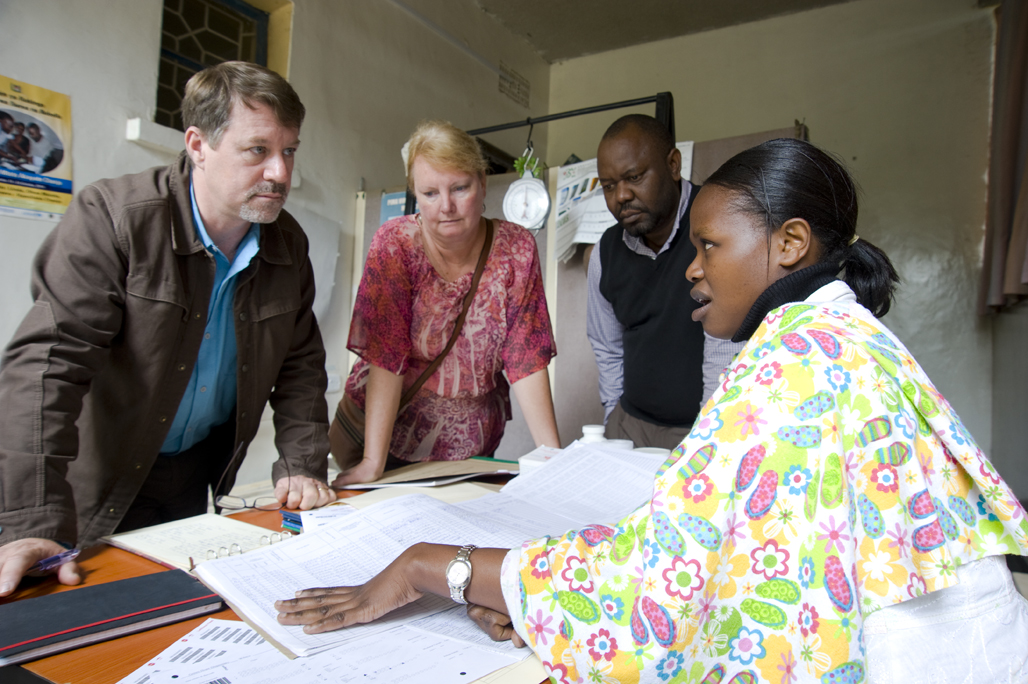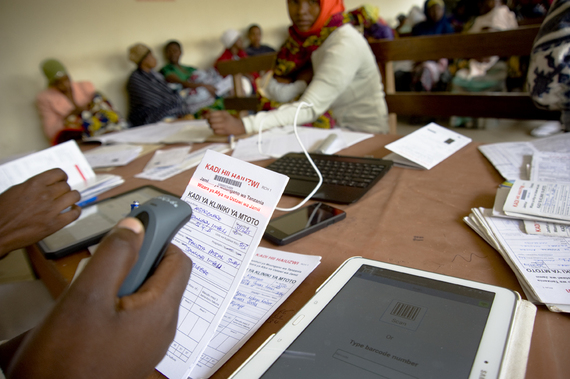Betting on Better Data
By Dr. Orin Levine, Director of Vaccine Delivery, Bill & Melinda Gates Foundation
Aug 18, 2015
Posted in People, Policies & Practices, Products
We recently hosted a delegation from the Bill and Melinda Gates Foundation, our funder, in Arusha region, our testing site in Tanzania, to view firsthand the rollout of the BID Initiative. The following article originally appeared on the Huffington Post Impact Blog.
When you mention innovation, most people immediately think of the latest app that tracks daily life with pinpoint precision, or costly new technologies like Google Glass that just a decade ago would have been considered impossible.
But in health clinics across Africa, it’s a new kind of low-tech innovation that is promising to help health workers, stretch donor dollars and save lives. The Better Immunization Data (BID) Initiative, a partnership led by Seattle-based organization PATH, is revolutionizing the way vaccine data is tracked from the lab to the last mile.

Photo: Bill & Melinda Gates Foundation. Nurse Evodia Malila distributes vaccines to children at the Ngarenaro Health Center in Arusha, Tanzania on July 15, 2015.
Despite recent progress preventing millions of child deaths worldwide through immunization, getting vaccines to children in the hardest-to-reach communities still presents numerous challenges. One in five children still lacks access to basic vaccines, and across Africa, the average immunization rate stubbornly hovers around 77 percent. To close the gap, we first need to understand why progress has stalled. Better data collection can unlock those answers, and help us find new ways to maximize donor investments in vaccines.
Too often, the story of vaccine supplies and patient visits is hidden in dusty registers, the result of notes scribbled in pencil (often in triplicate) by an overburdened health worker. This is an inefficient way of doing business and takes valuable time away from patient care. It also renders meaningful data analysis next to impossible. Without reliable, easily accessible and actionable information on the barriers to immunization, decision makers don’t have the full picture. Better data is required to understand which problems matter most, and where.
The BID Initiative could change everything. With pilot programs now underway in Tanzania and Zambia, BID is empowering health workers and country decision makers by pinpointing inefficiencies and identifying the best ways to solve them.
I recently visited the Arusha region of Tanzania to see the BID pilot in action. Tanzania’s health system has improved steadily under the leadership of Dr. Dafrossa, manager of the expanded program on immunization. “Coverage has increased to over 90 percent,” she explained. “We have introduced many new vaccines, and now with the BID Initiative, we want to increase our efficiency.”

Photo: Bill & Melinda Gates Foundation. Orin Levine, accompanied by Gates Foundation staff and members of PATH meet with Caroline Agade, clinical officer at the Green Hope dispensary in Arusha, Tanzania on July 15, 2015.
- Country-owned, country-led solutions will lead to long-term improvements. There’s no question that better data collection leads to better analysis, smarter funding and healthier communities. Health workers on the front lines in African clinics know best where the shortfalls are, which is why the BID Initiative established User Advisory Groups of members from all levels of Tanzania’s health system to inform how BID solutions should be implemented at the local level.
- BID emphasizes process innovation, not technology innovation. To be sustainable, efforts to improve data can’t rely on expensive technologies to succeed. Appropriate technology products should only be one part of a coordinated approach that connects policies, practices and people. In Tanzania, the User Advisory Group implemented an inexpensive intervention to enable process-level change. Using a peer-support communication forum on the low-cost messaging platform WhatsApp, health workers help each other complete reports and ensure vaccine supply levels are adequate at facilities across the region. By proactively communicating with one another, they can avoid experiencing stock-outs in one clinic and surpluses in others.Another example is the launch of Tanzania’s national electronic immunization registry to register every child from birth. Depending on each facility’s infrastructure, health workers can register children’s vaccinations online or use paper forms with barcodes compatible with the electronic system. Now, instead of spending hours searching through a dense register, health workers can quickly determine who didn’t show up for their vaccinations, where they live and how to reach their parent or guardian.
- Improvements that enable better immunization data can improve other health programs. Every aspect of BID is designed to be scalable, less vertical and focused on efficiency. In the future, these solutions can be used to support not only vaccination, but to collect and share data to help reduce the spread of disease and increase the use and availability of family planning supplies, for example.

Photo: Bill & Melinda Gates Foundation. Nurses scan infants health cards to verify which vaccinations are required; this program is part of the Better Immunization Data Initiative (BID) at the Ngarenaro Health Center in Arusha, Tanzania on July 15, 2015.
